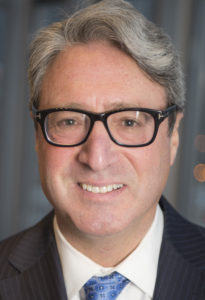
This presentation has been rescheduled and will now take place Thursday, March 7, 2019, at 6:15 pm.
The Battle of Lincoln Park tells the story of how people with clashing visions and values fought to determine the path gentrification would take before anyone was using that word. Calling on the power of private funds, public policy, moral appeals, and both nonviolent and violent protest, residents of Old Town and Lincoln Park struggled over the meaning of “desirable” homes, “neighborhood character”, and what kind of city Chicago should be. The outcomes set the tone for profound changes to the city that are still unfolding today.
Acclaimed author Daniel Kay Hertz has written extensively on subjects relating to gentrification, housing, urban demographics, and transportation. This is his first book.
Registration is required for this free event. Building security will print a badge for you to go upstairs. If you plan to come, or are just considering the possibility, please let us know by email events@hgchicago.org or by phoning us at 312 362-9302.
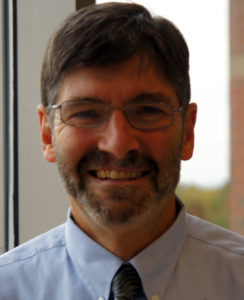
Ron Baiman will speak on taxing the rentier sectors to achieve the necessary reallocation of economic resources and investment. Mr. Baiman is an economics professor at Benedictine University,
Registration is required for this free event.
Yes, it is possible to end poverty in America — or any independent nation — by recognizing a clear and logical distinction between private property and community property. Not just the poor, but everyone would have the opportunity to earn a decent living and enjoy better quality of life. Henry George, a prominent American philosopher and economist of the late 19th century, was the leading advocate of this reform. His book on the subject, Progress & Poverty, was probably the best-selling nonfiction work of his time, sparked a movement which brought prosperity to several American communities and foreign countries.
Introducing Progress & Poverty is a program by the Henry George School of Chicago, outlining the principles George advocated, how and why they work, and their potential for solving today’s problems– not just poverty but everything that follows from it, such as lack of affordable housing, employment discrimination, inadequate wages, political corruption, etc. Attendance is without charge or obligation.
For those wanting in-depth understanding of the logic and implications of Progress & Poverty, this presentation constitutes the initial an extended course which will continue at this location on Tuesdays thru May 21.
If you are interested in the topic but this date and location don’t fit your schedule, please sign up for our announcement list.

Join us in celebrating Income Tax Appreciation Day. This page will be updated with specifics of our celebration as we figure out how best to do it.
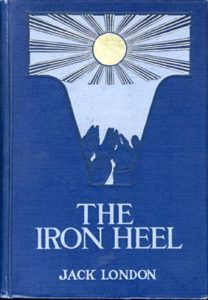 Bob Matter’s Political Economy Book Club is reading Jack London’s dystopian novel The Iron Heel. On June 25 we’ll discuss chapters 1-13, and on July 23 chapters 14-25. This 1908 text is available free from Project Gutenberg, in hardcopy from some public libraries, or as an audiobook. You can buy used hardcopies for < $10 from several vendors.
Bob Matter’s Political Economy Book Club is reading Jack London’s dystopian novel The Iron Heel. On June 25 we’ll discuss chapters 1-13, and on July 23 chapters 14-25. This 1908 text is available free from Project Gutenberg, in hardcopy from some public libraries, or as an audiobook. You can buy used hardcopies for < $10 from several vendors.
We’ll meet at the East Loop location of Bridgeport Coffeehouse, 73 E Jackson Blvd.
 Bob Matter’s Political Economy Book Club concludes its discussion of Jack London’s dystopian novel The Iron Heel. On July 23 we treat chapters 14-25.
Bob Matter’s Political Economy Book Club concludes its discussion of Jack London’s dystopian novel The Iron Heel. On July 23 we treat chapters 14-25.
We’ll meet at the east loop location of Bridgeport Coffee, 73 E Jackson.
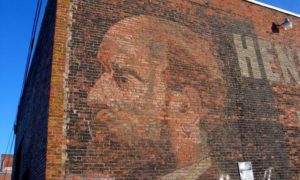
Henry George was born in Philadelphia on September 2, 1839, so we’ll celebrate his 180th birthday on Labor Day. As usual, the event will be in a south Evanston back yard, beginning when we get some shade around 3:00, and continuing at least until dark (We do have indoor space in case of rain or extreme heat).
This is a potluck; bring something if you can and let Chuck know about it. Grilled sausages and some vegan stuff will be provided. All alumni, friends, and prospective students of the School are welcome but you must let us know you’re coming. Expect to find some soft drinks, beer, maybe wine if somebody brings some.
While the event is free, monetary donations will be gratefully accepted.
PLEASE NOTE: Due to building rules you must register to attend this session.
Yes, it is possible to end poverty in America — or any independent nation — by recognizing a clear and logical distinction between private property and community property. Not just the poor, but everyone would have the opportunity to earn a decent living and enjoy better quality of life. Henry George, a prominent American philosopher and economist of the late 19th century, was the leading advocate of this reform. His book on the subject, Progress and Poverty, was probably the best-selling nonfiction work of his time, sparked a movement which brought prosperity to several American communities and foreign countries.
Introducing Progress and Poverty is a program by the Henry George School of Chicago, outlining the principles George advocated, how and why they work, and their potential for solving today’s problems — not just poverty but everything that follows from it, such as lack of affordable housing, employment discrimination, inadequate wages, political corruption, etc. Attendance is without charge or obligation.
For those wanting in-depth understanding of the logic and implications of Progress and Poverty, this presentation constitutes the initial session of an extended course which will continue at this location on Tuesdays thru November 19
If you are interested in the topic but this date and location doesn’t fit your schedule, please sign up for our announcement list.
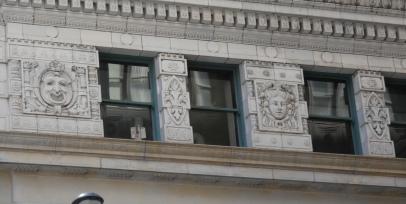
Right on the streets of every American community, robbery takes place every working day. You might not realize how much value the people of Chicago (and every other community) already create, simply by going about our daily activities. You’ll learn how we could comfortably produce much more, if only a smart tax policy were put in place.
Originally conceived as a field trip for Progress and Poverty students, this stroll — about 2 km and 90 minutes — presents some answers for those interested in finding out. Additionally, we’ll take a look at recovered loot of a long-ago theft, learn how Thomas Jefferson proposed to finance Chicago’s public schools, see some infrastructure that you probably didn’t know about, visit a shopping mall that you paid for but don’t own, and glimpse a billionaire’s downtown garden.
Detailed sourced notes will be provided. This is now a free tour, no donation required, although we do appreciate (tax-deductible) contributions from those who can afford it and find the event worthwhile.
Please sign up using the Eventbrite link.

